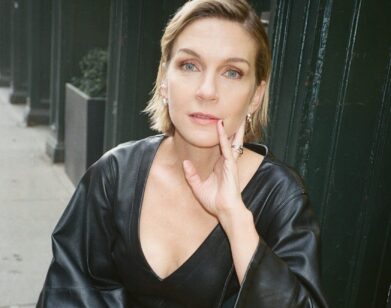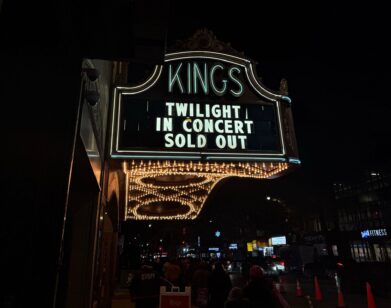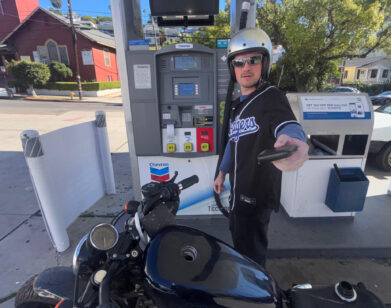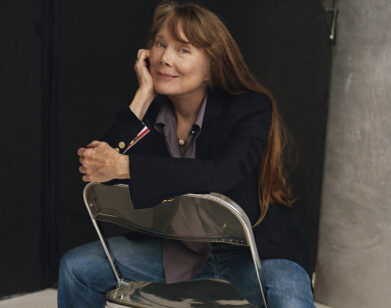Pied Piper of Perth
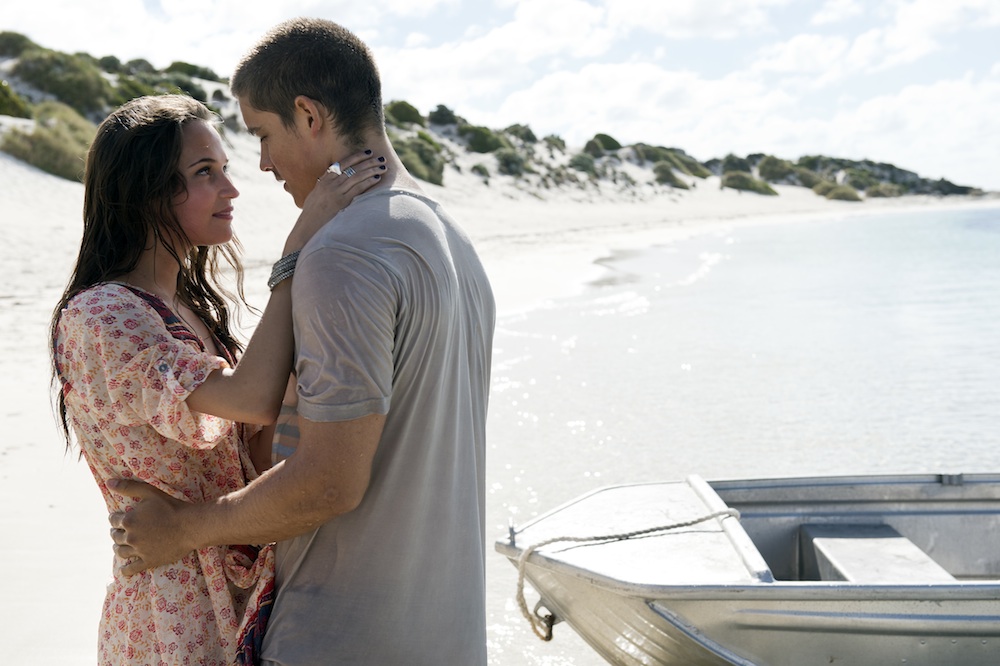
ABOVE: ALICIA VIKANDER AND BRENTON THWAITES IN SON OF A GUN
Son of a Gun, the first film from Australian writer-director Julius Avery, opens with a young, green man named J.R. (Brenton Thwaites) who is serving a six-month prison sentence. After seasoned inmate Brendan (an intensely bearded Ewan McGregor) protects J.R. from a violent attack, J.R. participates in a risky prison break. The film, however, is neither a gritty prison drama nor a classic prison break story.
Once out, Brendan takes J.R. under his wing and they re-enter the criminal underbelly of Perth, Australia. The two plan a final heist, which, naturally, does not go according to plan—albeit not in the way you might think. With rising-star Alicia Vikander rounding out the cast as J.R.’s love interest, Son of a Gun isn’t just another heist flick, either.
KAYLA TANENBAUM: You wrote and directed this feature. Do you identify more as a writer or a director?
JULIUS AVERY: A director. I’ve always written out of necessity. In Australia, all our really good writers are over in America and busy. On Son of a Gun, I actually worked with a script consultant John Collee, who did Master and Commander. I really enjoyed that process. I probably don’t have the patience for writing.
TANENBAUM: Where did you get the idea for the story?
AVERY: The heart of the story is loosely based on a story when I was growing up. I sort of fell into the wrong crowd; I lost my father when I was quite young and so I started hanging out with some of the older boys and this kind of Machiavellian character came into my life. He took me under his wing just like Ewan McGregor’s character takes Brenton Thwaites. All the stuff that we were into was petty crime and so forth, but he was an interesting character. I was always looking for father figures and he was quite paternal but also sent me out on missions of destruction.
TANENBAUM: Wow.
AVERY: I was lucky enough that I had an outlet. My mum was an artist. We were living in the country in Western Australia, and I got accepted into this quite prestigious art college in the city. I got out of it when I was about 15.
TANENBAUM: Was there resistance when you tried to leave?
AVERY: There was a real resistance. They didn’t understand why I wanted to leave and get out of that situation. Some of them are dead now so I was quite lucky to have had some art to fall back on.
TANENBAUM: Did you have a really artistic childhood?
AVERY: Yeah. Since I can remember, mum was always giving me paper and pencils and encouraging me to draw because I was quite dyslexic growing up and hated school. I found the whole academia quite troubling. Art was a real outlet for me because I was quite fussy over it all. We didn’t know I was dyslexic until I was about 15 and then it all sort of made sense.
TANENBAUM: The crimes that the movie depicts are not petty. They’re huge robberies and prison breaks. What kind of research did you do?
AVERY: The prison break wasn’t written as a helicopter escape. It was actually written as a sneaky breakout at night. I was faced with a problem—the producers came to me, said, “We can’t afford to do the breakout the way it’s written,” and I said, “What’s the problem?” They said, “It was $100,000 worth of lighting because it was set at night and we can’t afford that and so you need to rethink it. The good news is you’ve got the weekend to write it.”
I remembered we went to a prison. I was talking to the prison warden—he was taking me on a tour—and he was inquiring how I saw the prison break. I told him. He said it was unbelievable—it would never happen that way. I was cut up because I like to keep things as real as possible. He said, “I’ll tell you a story of how I would do it.”
TANENBAUM: Really?
AVERY: He told me a story of this Colombian drug lord on prison exchange program—if they kept him back in Colombia, they’d be trying to break him out every second. They thwarted this plan to break him out via helicopter. They raided this team of marine guys that were going to break him out with machine guns, so I felt it was very plausible to do a helicopter escape. Just recently in Quebec the exact same thing happened. There’s been about 22 cases of helicopter breakouts.
TANENBAUM: What research went into the heist?
AVERY: I come from Western Australia; it provides the economy in Australia with 85 percent of the wealth through mining. One of the major components is gold, and where there’s gold, there’s greed. I claim Western Australia and Perth as a modern-day version of Deadwood. There’s a lot of really interesting characters there that have come from all around the world because it’s one of the most isolated cities in the world. There are a lot of criminal elements there that have come to feed off the wealth.
I didn’t want to do your normal heist—a bank or a vault or something like that. I wanted to go to the source. I did a lot of research into how they do it. I went out to the mines and the actual gold room that we used is exactly like it is in real life. It’s not a laboratory-type, clinical look. It’s very old world and they use technology that’s been around for thousands of years.
TANENBAUM: You could really go rob some gold mines.
AVERY: Yeah. It hasn’t been done before, and I’m hoping it doesn’t give anyone any ideas because it’s actually very plausible. They pour sometimes $40 million worth of gold in one day. I’m a huge fan of Michael Mann—I wanted to do Heat in the Outback. Obviously it’s a very big benchmark to hit, so even if it came to 10 percent of that I’d be happy.
TANENBAUM: What speaks to you in Michael Mann’s work?
AVERY: What I love about Michael is that he has a real documentary attention to detail, [but] he doesn’t let it get in the way of a fun and intense ride. The level of detail that he puts into his films is what I aspire to. Hopefully, like, the heist and the helicopter stuff, it all feels as real as possible.
We shot in a real prison and used real prison guards. I would’ve loved to have used the real prisoners but obviously there were safety concerns. We used all street cast and real people; the guys acting against Ewan in some of those scenes had just been taken off the street and they did a really great job.
TANENBAUM: How did the producers feel about that?
AVERY: I’ve worked with a lot of non-actors and actors, so I always find it really rewarding if you can pull it off. You just need to work it in a way that isn’t rigid and is a bit more free-flowing. Of course, you also want to have amazing actors like Ewan McGregor.
TANENBAUM: I wanted to talk a bit about the casting. What were you looking for in your actors? Did you write any of the roles with someone specific in mind?
AVERY: I never write with anyone in mind because you can get so disappointed if they say no. I didn’t want [McGregor’s character] to be just malevolent. I wanted him to have a charming quality to him. The guy that I hung out with, he used to be really charming and make you feel really special, but he’d also beat someone within an inch of their life. He really used to work a room. He used to make people laugh and feel really welcomed. Ewan, I felt, was going to be able to bring a real three-dimensional quality to the character because he has an innate charm about him. These criminals that I’ve hung out with, they call it grooming—they groom you and make you fall under their spell and get you to do things for them. It’s not a scandal. The way you actually feel, “Oh, it’s a really nice thing to do. I’ll do that.”
TANENBAUM: Did you give your actors any performances to look at?
AVERY: I said to Brenton, “You should check out [Jacques Audiard’s] A Prophet.” I thought that the kid in that was quite amazing. One of the things I do in rehearsals is just try and get people to hang out as much as possible with each other rather than work the script. There’s nothing worse than an actor turning around and saying, “You’re on your own” to another actor. It happens all the time. To have an actor invest in another actor and to help them and to be giving and sharing is the key to any great performance.
SON OF A GUN IS SCREENING IN SELECT THEATERS IN NEW YORK AND L.A. AND IS ALSO AVAILABLE VIA V.O.D.



